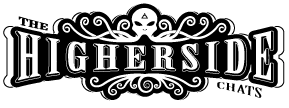We've all heard of The Muse. Film producers, musicians, authors, poets, comedians, mystics, prophets, psychics, and countless others talk about being a conduit for their work. Maybe you've even had an experience with it yourself. Isn't it weird that Aleister Crowley was getting messages from an entity identified as Tuthulu, and H.P. Lovecraft writes a story about an entity named Cuthulu? Or that a book eerily similar to the events of the Titanic was published 14 years before the incident took place. Or the fact that there seems to be more predictive programming for events like 9/11, to the point where it seems impossible to complete through the work of human hands.
The definition of a muse is: a person or personified force who is the source of inspiration for a creative artist. I'm here to tell you that it can be much more than that. The muse can in fact be a person or object. I am here to not only support that, but to build the case that the personified force is also tied to entities but more importantly time.
Here is a small example just to get people familiar with the concept of the muse. (i realize there is no relation to time in the following example) In the following days I'll be posting much more in this thread to build my case that time is not a linear projection like we perceive, but can act like a ripple in a pond. When an event has enough presence in the greater consciousness of the world, it can send the image backwards in time to those who are most sensitive to these type of things. They express these events in their work and credit an unknown force that compelled them to do it.
Paul McCartney may have been the most famous person to ever describe an encounter with the muse, although it seemed at the time that even he didn't realize what had happened. He described his encounter as follows:
I woke up with a lovely tune in my head. I thought, ‘That’s great, I wonder what that is?’ There was an upright piano next to me, to the right of the bed by the window. I got out of bed, sat at the piano, found G, found F sharp minor 7th — and that leads you through then to B to E minor, and finally back to E. It all leads forward logically. I liked the melody a lot, but because I’d dreamed it, I couldn’t believe I’d written it. I thought, ‘No, I’ve never written anything like this before.’ But I had the tune, which was the most magic thing!”
The melody came to him in a dream through no control of his own. He didn't write it. He didn't think about it. It just came to him from somewhere that couldn't be explained.
http://www.telegraph.co.uk/culture/...-the-song-that-started-as-Scrambled-Eggs.html
The definition of a muse is: a person or personified force who is the source of inspiration for a creative artist. I'm here to tell you that it can be much more than that. The muse can in fact be a person or object. I am here to not only support that, but to build the case that the personified force is also tied to entities but more importantly time.
Here is a small example just to get people familiar with the concept of the muse. (i realize there is no relation to time in the following example) In the following days I'll be posting much more in this thread to build my case that time is not a linear projection like we perceive, but can act like a ripple in a pond. When an event has enough presence in the greater consciousness of the world, it can send the image backwards in time to those who are most sensitive to these type of things. They express these events in their work and credit an unknown force that compelled them to do it.
Paul McCartney may have been the most famous person to ever describe an encounter with the muse, although it seemed at the time that even he didn't realize what had happened. He described his encounter as follows:
I woke up with a lovely tune in my head. I thought, ‘That’s great, I wonder what that is?’ There was an upright piano next to me, to the right of the bed by the window. I got out of bed, sat at the piano, found G, found F sharp minor 7th — and that leads you through then to B to E minor, and finally back to E. It all leads forward logically. I liked the melody a lot, but because I’d dreamed it, I couldn’t believe I’d written it. I thought, ‘No, I’ve never written anything like this before.’ But I had the tune, which was the most magic thing!”
The melody came to him in a dream through no control of his own. He didn't write it. He didn't think about it. It just came to him from somewhere that couldn't be explained.
http://www.telegraph.co.uk/culture/...-the-song-that-started-as-Scrambled-Eggs.html
Last edited:

